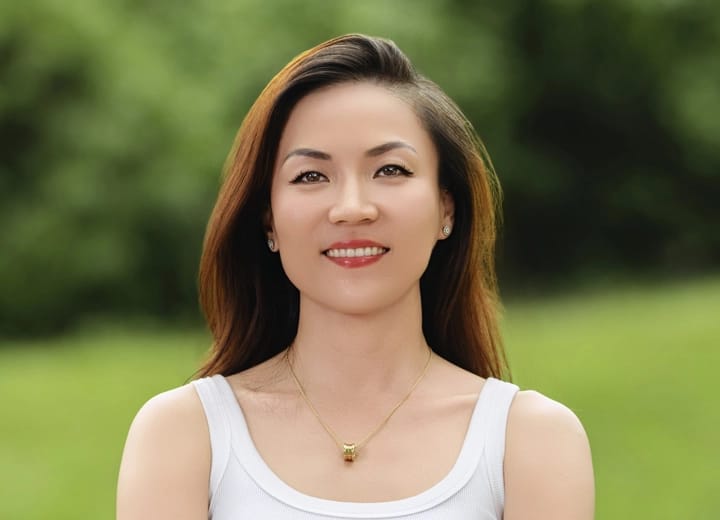By Chervee Ho, Co-founder & CEO, BioChromatographix International (BCI)
A Mentor’s Moment of Clarity
During a recent mentor-mentee matching session, part of a startup ecosystem—I was asked a question that gave me pause:
“Chervee, should I find a co-founder? If yes, how do I find the right one? What criteria should I use?”
It’s a simple question on the surface, but one that every founder eventually confronts and few are truly prepared to answer.
Having co-founded BioChromatographix International (BCI), a Singapore-based biotech startup behind the AXISFLOW™ Next-Generation Monolithic Chromatography Media, I’ve lived the ups and downs of building a company from scratch. From this experience, I can say with conviction: Every biotech founder needs a ‘commercial’ co-founder—someone who complements the science with business insight, market understanding, and strategic focus.
In this article, I’ll share why that matters, what I’ve learned from building BCI, and practical advice for biotech founders seeking the right commercial co-founder.
The Essential Role of Co-Founders in Biotech
When launching a biotech venture, it’s natural and often necessary to focus deeply on the science. Biotech is capital-intensive, complex and filled with technical unknowns. Many founders come from scientific backgrounds, driven by discovery and innovation.
But here’s the truth I learned early on: Technology doesn’t build a successful company. People do.
Co-founders aren’t just business partners. They’re your sounding board, your strategic compass, and—sometimes—your emotional lifeline.
At BCI, I co-founded the company with Scott M. Wheelwright, PhD; whose deep technical expertise perfectly complements my commercial and strategic focus. From day one, Scott has been more than just a co-founder. He’s been a collaborative mentor, a critical thinker, and someone I trust deeply.
I still remember him saying, “I’m not much of a conversationalist, but you have a real strength in sales, marketing and building relationships.” That candid moment reminded me that great partnerships aren’t about being alike. They’re about bringing different strengths to the table and trusting each other to lead where we shine.
What Does ‘Commercial’ Really Mean in Biotech?
The term commercial can mean many things. In the context of biotech startups, a commercial co-founder brings a specific set of capabilities:
- Understanding the market landscape and unmet customer needs
- Realistically positioning and pricing products based on pain points
- Building go-to-market strategies tied to regulatory and technical milestones
- Communicating value to investors, customers, and partners
- Bridging science with practical, scalable business solutions
At BCI, this mindset has been foundational. Our AXISFLOW™ monoliths combine Advanced Methacrylic Polymer Technology with proprietary “Inverted Morphology” designed to solve real-world purification challenges. But without a commercial lens, we risked building something brilliant but irrelevant.
Having commercial strategy embedded early helped us avoid the trap of “technology push.” It forced us to prioritize what matters to customers and focus on getting to market with clarity and speed—not perfection.
The Humbling Reality of Commercializing Biotech Innovations
Commercializing biotech isn’t glamorous. It’s messy, slow and full of hard truths.
In our early days at BCI, we believed we had a game-changing product. But we quickly realized that customer adoption is never instant even for superior technology. Biopharma users often default to legacy systems unless they’re given compelling, validated reasons to switch.
That’s why the question “Who needs this, and why now?” became our daily compass.
A commercial co-founder keeps the company grounded. They ask uncomfortable questions, push for clarity, and ensure every technical decision aligns with customer value.
They also drive momentum by translating big vision into tangible goals:
- What must we prove?
- Which customers can be first adopters?
- What pricing strategy removes friction?
Having a commercial mindset from the start helps teams prioritize what’s needed to get to market sooner. It’s not just about branding or messaging. It’s about setting realistic launch goals, identifying the fastest viable path to revenue, and focusing technical development on what early adopters will pay for. That clarity and direction can be the difference between endless iteration and real traction.
This thinking helped us move beyond theory. It turned launch from an abstract concept into a series of defined, achievable steps making commercialization feel actionable, not aspirational.
When and How to Find a Commercial Co-Founder
If you’re currently a solo biotech founder or wondering whether to bring someone on board, here’s my advice:
Start early—before you’re overwhelmed. Finding a commercial co-founder before your vision and values are fully locked allows you to build with that partner, not just bolt them on later.
Scott and I started early at BCI, which allowed us to co-create the foundation. That gave us faster decision-making and stronger alignment.
Here are some principles that helped and may help you too:
1. Look for More Than Just Skills
A great commercial co-founder should know go-to-market strategy, pricing, and customer behavior. But more than that, they should share your values and vision. Ask yourself:
- Do we believe in the same mission?
- Can we challenge each other respectfully?
- Are our strengths complementary?
- Are we equally committed to the long road ahead?
Great partnerships are built on trust, not just resumes.
2. Broaden Your View
Don’t just look for someone with an MBA. Some of the best commercial leaders in biotech come from hybrid backgrounds—regulatory, pharma, business development, or technical sales.
Explore startup ecosystems, biotech accelerators or pitch events. You may find the right partner in an unexpected place—someone who gets your science and can see the business potential.
3. Test the Fit Before You Formalize It
Before formal commitments, collaborate on small projects: pitch decks, discovery interviews, strategy sessions. This reveals how you solve problem together, how you handle disagreement and whether you can sustain momentum under pressure.
4. Be Honest About Your Gaps
Many founders avoid looking for a co-founder because they aren’t sure what to look for or fear exposing their blind spots.
That’s okay. Clarity is the first step. What are your superpowers and what type of partner would truly challenge and complement you?
In my case, I could lead commercial execution, but I needed someone like Scott with deep technical vision to build a product platform customers could trust.
Building the Partnership: Lessons from BCI
One of the smartest decisions we made at BCI was to treat our co-founder relationship as a long-term collaboration, not a transaction.
We came from different worlds—Scott from pharmaceutical product development and chromatography; I came from pharmaceutical commercialization and biotech strategy. On paper, it looked like a classic “tech and business” duo. But what made it work was that we deeply respected each other’s judgment.
We debated often but always from a place of mission alignment.
Here are a few lessons that shaped our partnership:
1. Define Roles, But Stay Fluid
Early on, we wore every hat. As we grew, we gradually clarified ownership. But we stayed focused on outcomes, not egos.
2. Communicate, Even When It’s Uncomfortable
From pricing pivots to delays in R&D, we talked early and often. That transparency-built trust and made us faster decision-makers.
3. Revisit the Vision Often
Your original idea will evolve. And that’s not failure—it’s growth. AXISFLOW™ had to shift form, price point and validation level based on customer input. Because we were aligned, those pivots felt natural, not painful.
4. Build Around Momentum, Not Titles
We stayed focused on progress:
- Are we learning faster than competitors?
- Are customers excited to test?
- Are we staying motivated despite uncertainty?
In biotech, where timelines are long, that momentum is your true lifeline.
What If You Can’t Find a Commercial Co-Founder?
Not every biotech startup starts with a dream team. That’s okay. But if you don’t have a commercial co-founder, you need to intentionally fill that gap early. Here’s how:
1. Build a Commercial Advisory Circle
Assemble advisors who’ve launched, sold or scaled similar products. Their insight on pricing, messaging and market entry will save you months.
2. Hire for Mindset
Even one early commercial hire can help but look for curiosity and clarity, not just titles. Fractional CCOs or contractors can offer flexibility.
3. Get Out of the Lab
Founders must engage in customer discovery, even if it feels unnatural. Ask direct questions. Attend industry events. Learn what your future customers care about.
4. Focus on the Right Signals
Patents, specs and pitch decks are great but they don’t validate product-market fit. Watch for signs like:
- Requests for demos or pilots
- Customers sharing their pain points
- Willingness to co-develop or test
5. Don’t Wait for Perfect
You don’t need a polished product to start selling. You need a clear narrative and a way to de-risk the first buyer’s decision. Work on polish later. Start with clarity.
The Humble Power of Complementary Founders
The biotech ecosystem needs more honest stories about founders who lean into complementary strengths. We often glorify the lone scientific genius but building a biotech company isn’t a solo act. It’s a team sport and the most resilient companies are built by co- founders who challenge, complement, and grow alongside each other.
For every founder driven by the thrill of discovery, there’s immense value in a commercial co- founder who brings clarity to the market, asks the tough but necessary questions and turns vision into traction. This isn’t about business plans and sales decks; it’s about building a company that understands its customers as deeply as it understands its science.
If you’re a biotech founder pondering your co-founder journey, ask yourself:
- What am I best at and where do I need support?
- Who can push me to see blind spots without undermining the mission?
- How do we build a partnership rooted in mutual respect, honesty and shared ambition?
Because in the end, the hardest challenges in biotech rarely come from the science itself. They come from translating that science into something the world can use. And the right commercial co-founder doesn’t just help you build a product; they help you build a company that lasts.





